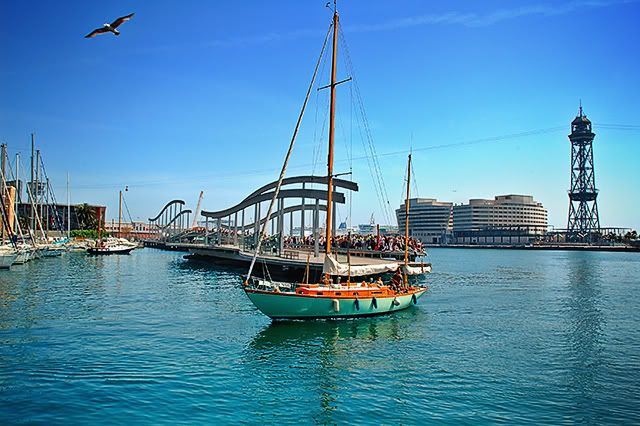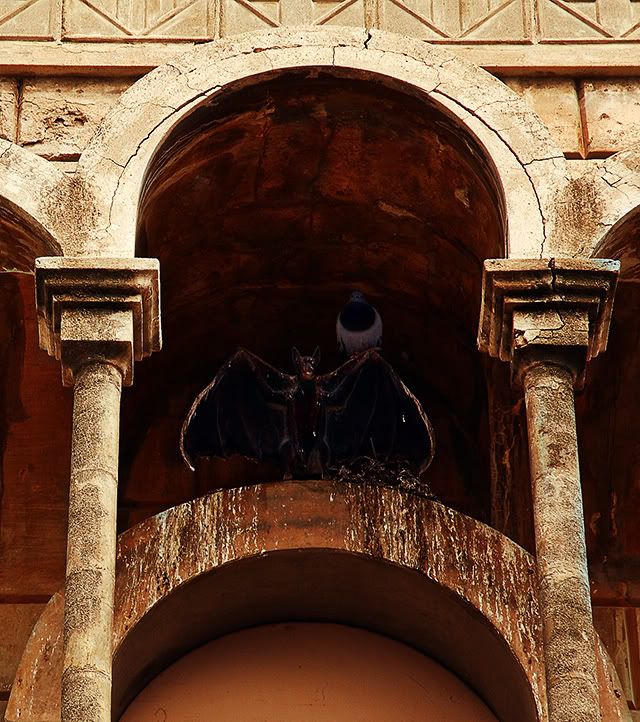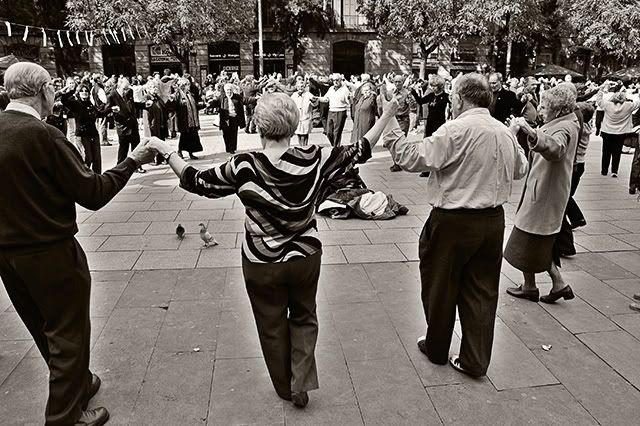![Holy Water Font or Basin Made With Shell, Colonia Guell's Crypt, Barcelona, Spain [enlarge]](https://i63.photobucket.com/albums/h135/carloslorenzo/Holy_Water_Font-Shell_.jpg)
Stationary fonts like this are placed at the entrance to churches as you all know but I am sure you never saw a holy water font made with an enormous shell nor have you seen perhaps such wonderful ironwork pedicle. Nothing is common and ordinary when you enter Gaudi's crypt at Colonia Guell. The place has columns, altar, stain glass and pews as any other church but you have to be prepared to digest the degree of variation of the holy elements. A church was supposed to be on top of the crypt, as the latter was part of a bigger project which started in 1908. In 1917 one year after Gaudi's art patron and friend, Eusebi Guell, died, the work was finally stopped. As you can guess foundations are very solid. Columns are made of basaltic rock and different kinds of bricks. The ceiling is vaulted in the most traditional gothic style. Every arch, every pillar, was precisely calculated with small sacks full of pellets which were tied to the ceiling in Gaudi's workshop by means of small pieces of cloth and string making up what is known as a stereostatic model. The weight of every sack was proportional to the load every arch element had to hold. But everything here is hard to imagine without visiting Colonia Güell of course. By the way, there were some posts in Barcelona Photoblog some time ago that might help: Caprice Supreme of Architecture, Modernist Door and Mosaic, Futurist Windows and Stained Glass



![Vildsvin, The Old Tavern in Ferran Street, Barcelona [enlarge]](https://i63.photobucket.com/albums/h135/carloslorenzo/Vildsvin_The_Old_Taverna_.jpg)







![Mitoraj: Art and Publicity [enlarge]](https://i63.photobucket.com/albums/h135/carloslorenzo/Mitoraj_ArtandPublicity_.jpg)
![Skateboarding in Barcelona [enlarge]](https://i63.photobucket.com/albums/h135/carloslorenzo/Skateboarding_Barcelona_.jpg)